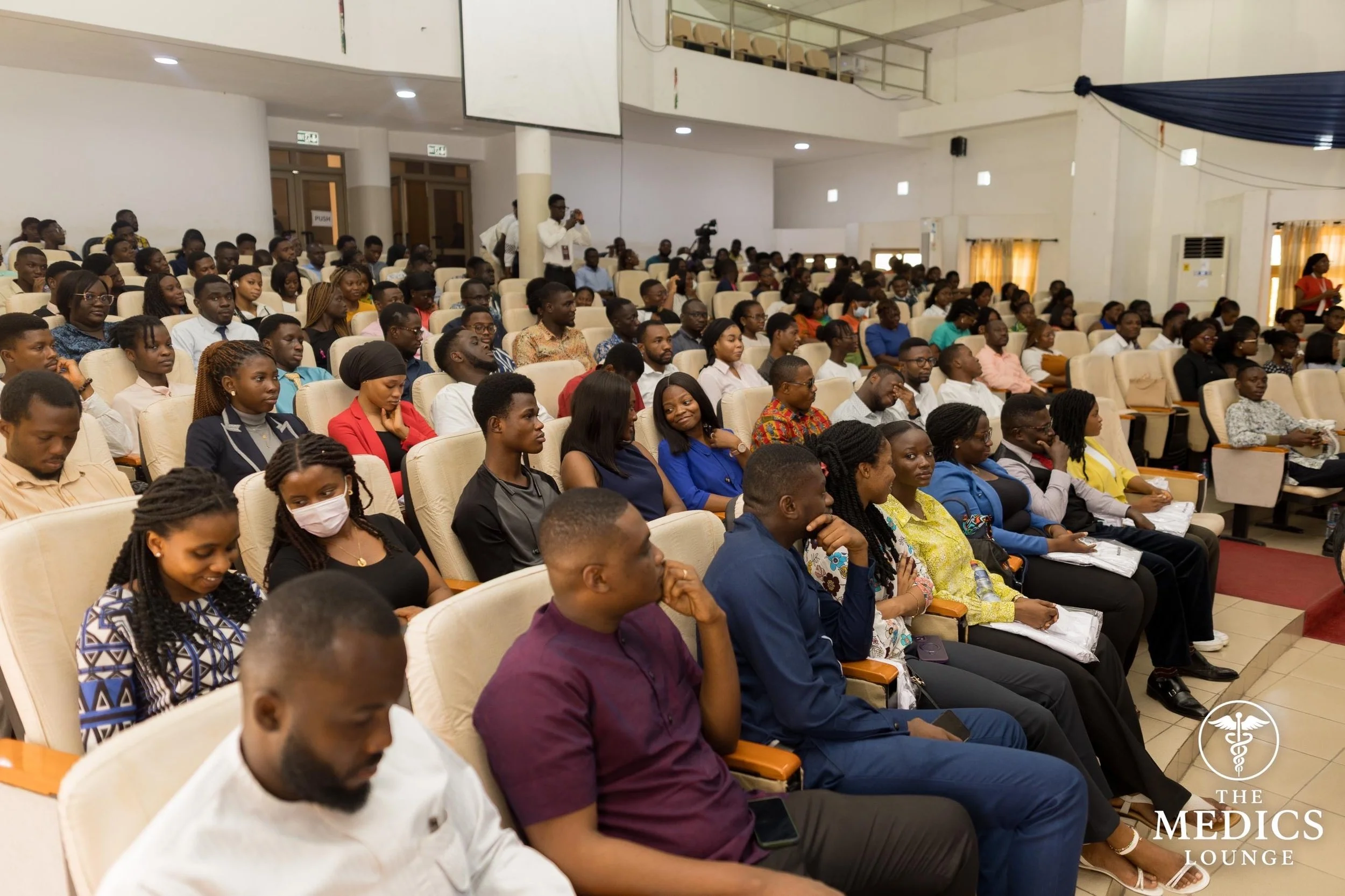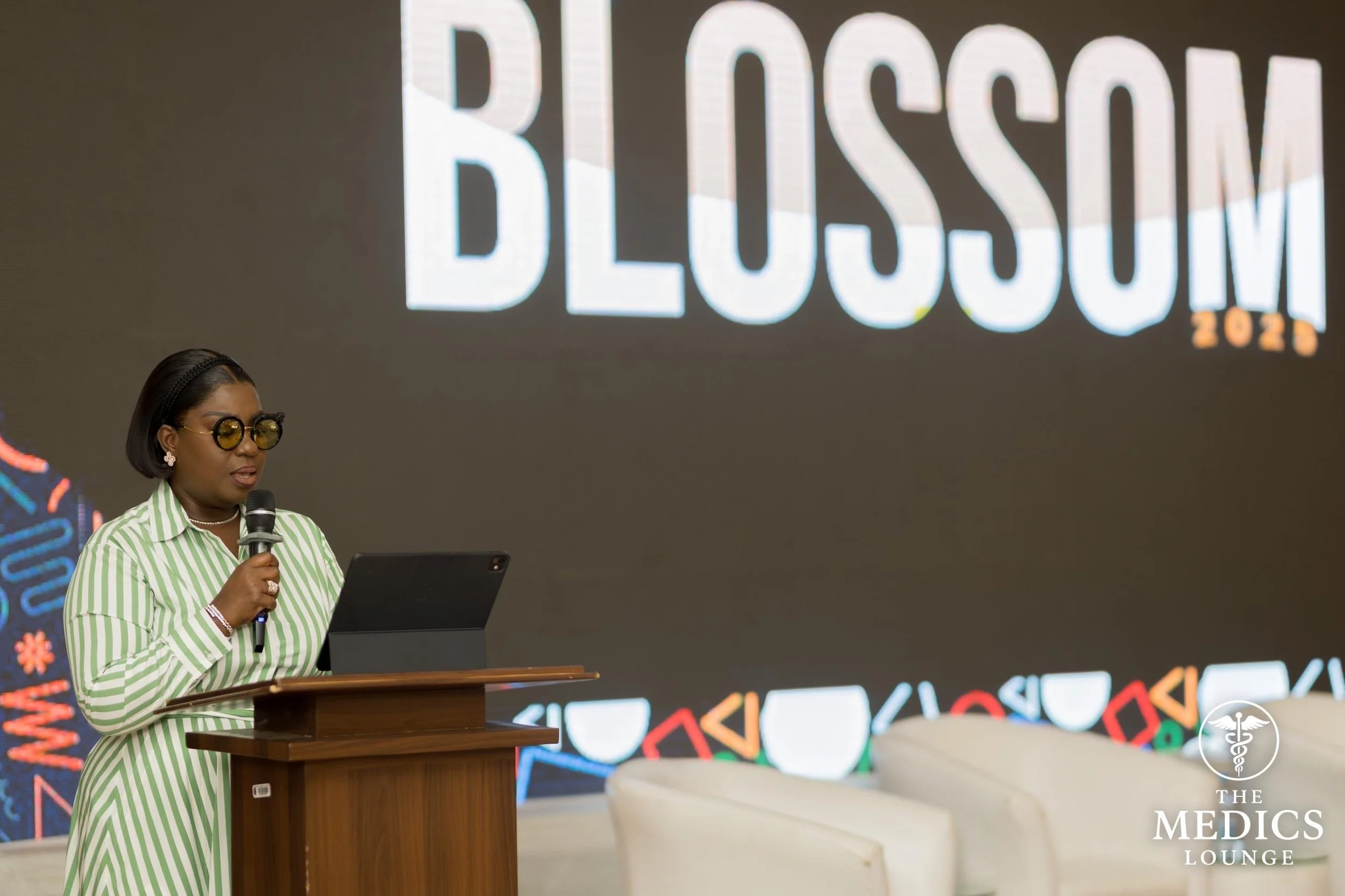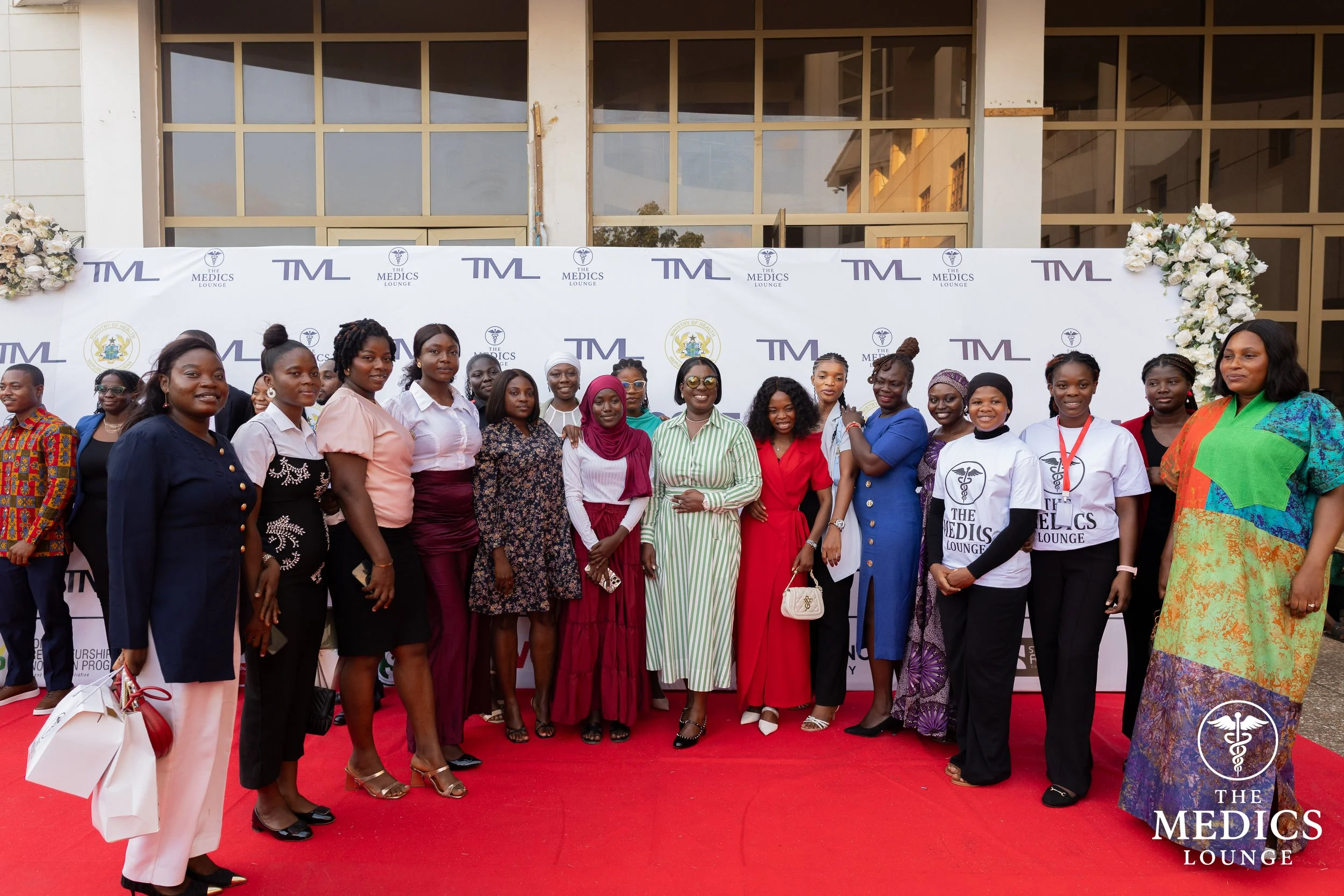Africa’s Future Healers Must Not Just Survive; They Must Blossom!
My relationship with medicine is unique, some would even say it is personal. Having always been one to care for people around me and wanting to be of service, I began my career in healthcare as a nurse. There, amidst the daily challenges of the ward, I came to appreciate my job and my deep interactions with patients. It was a deeply rewarding experience that taught me much about people, resilience, and the intricate workings of the health system. Yet, a persistent voice told me I needed to grow, to acquire more comprehensive knowledge and a greater capacity for impact, if I was to be truly useful to my patients and my community.
After a great deal of soul searching, I chose to go into medicine, driven by the commitment to further my understanding of the human body while maintaining my primary dedication to service and the betterment of patients. Now in medical school, fully immersed in the theoretical and practical rigors of training, a crucial realization has dawned. Future healers need help too! They need the tools, the resources, and the opportunities to be most useful to their patients because, particularly in the African context, the systemic challenges they face are formidable, threatening to stunt their growth before their careers even begin.
The path ahead requires far more than technical knowledge; it demands emotional fortitude and structural support. The environment in which African healthcare providers train and work is paved with significant and evolving challenges that can easily impact their effectiveness and well-being. The single greatest threat is often systemic. The long delays in receiving official government postings after graduation. This uncertainty surrounding future job security and remuneration leaves newly qualified doctors and other health professionals in prolonged professional limbo, often without a stable income or the critical opportunity to immediately consolidate their hard-earned skills. This financial and professional strain contributes to mental health and professional burnout. The long hours, sleep deprivation, exposure to profound human suffering, and high-stakes decisions associated with medical training already create an intensely stressful environment. When compounded by chronic systemic pressures like poor work conditions, resource scarcity, and the aforementioned posting delays, this makes future providers highly susceptible to deep-seated mental health issues. They are expected to heal others while their own well-being is often neglected, a recipe for exhaustion that severely compromises patient care. Adding to this institutional stress is the rapidly shifting nature of the medical field. Healthcare is constantly being revolutionized by fast-changing technology and a growing body of science. This demands that future providers continuously update their skills to leverage tools like AI diagnostics, telemedicine, and genetic therapies, which requires access to high-quality, continuous professional development opportunities that are often scarce or prohibitively expensive across the continent. Failure to keep pace risks creating a gulf between global best practices and local care quality. Perhaps the most defining difficulty is the complex public health landscape. African healthcare providers must manage a challenging “triple burden”: the traditional high prevalence of infectious diseases existing alongside a rapidly changing epidemiologic profile that includes a dramatic increase in non- communicable diseases and increasing injury and trauma from traffic accidents. This epidemiological complexity demands a broader, more integrated, and resource-intensive skill set than ever before.
Providing future healers with the institutional support, mentorship, and empowerment to navigate these challenges is not just a matter of improving professional welfare; it is a fundamental pillar for building resilient health systems across the entire continent. Africa’s future healthcare providers can no longer afford to just survive; they must be empowered to blossom. This urgent realization, driven by my commitment to service and the observation of my peers’ struggles, led to me co-founding THE MEDICS LOUNGE alongside Micky Kobby Boadwo and Evans Awuwey, both Physician Assistants and medical students. Together with our team we held the first annual conference themed “BLOSSOM: A Gathering of Minds, Medicine, and Motivation” on October 25, 2025.
“Because when minds gather, medicine evolves, and when motivation fuels purpose, the future of healthcare begins to Blossom. ”
When the curtains drew on the Blossom Conference 2025, one could sense that something transformative had occurred. The auditorium was filled not only with anticipation but equally with a renewed sense of vision and vitality among Ghana’s next generation of healthcare professionals. This event, organized by The Medics Lounge, was not simply another conference. It was the birth of a movement designed to reignite purpose, passion, and potential within the hearts of medical students, doctors, and healthcare leaders across the nation. This gathering was necessary because the medical field, in an era of unprecedented global challenges, demands more than just technical skill. It calls for resilience, ingenuity, and human-centered leadership.
Across Ghana, many young doctors and students find themselves navigating the challenging transition from academic theory to practical impact, often without structured mentorship or clear pathways to leadership. This is the precise gap The Medics Lounge was created to bridge. Blossom is the flagship of this vision, a space designed to inspire transformation and empower professionals to approach their careers with courage, clarity, and community. This year, the theme “The Gathering of Minds, Medicine & Motivation” captured the essence of what Blossom represents. It was a true convergence of ideas where intellectual rigor met emotional resilience.
The keynote speaker, Madam Obuobia Darko-Opoku, Administrator of Ghana Medical Trust Fund, delivered a deeply stirring address on resilience, a message that resonated profoundly with every listener. In a world where medical training and practice often test one’s emotional and mental limits, her words were a powerful reminder that resilience is not the absence of struggle but the strength to rise, rebuild, and continuously serve. The message was both timely and timeless. The event was thoughtfully structured to balance inspiration with actionable insight. The first Dynamic Panel Discussion, “Innovating Beyond Borders: Redefining Leadership and Business in Healthcare,” explored the powerful intersection of medicine, leadership, and entrepreneurship. Panelists challenged the participants to look beyond the hospital walls and reimagine healthcare as a space for building sustainable ventures and driving change within their communities. They emphasized that healthcare leadership begins with purpose and grows through continuous learning, adaptability, and courage. Mentorship emerged as a critical force in shaping innovative leaders and fostering cross-generational collaboration. The session concluded with a profound reflection on legacy and impact, leaving the audience deeply inspired and reminding every participant that the true measure of success in medicine is not fame or fortune, but the ability to touch lives and create lasting change. The second discussion, “From Academia to Practice: Building Sustainable Careers and Global Opportunities in Medicine” explored how to transform education into empowerment, knowledge into opportunity, and ambition into sustainable careers. The panelists underscored that medicine is far more than a science. It is a lifelong journey of growth, service, and reinvention. This conversation tackled the persistent challenge of bridging academic preparation and real-world practice, emphasizing the importance of aligning classroom learning with the realities of patient care, ethical decision-making, and community impact. The discussion also spotlighted global exposure, urging young professionals to pursue international training and research fellowships not simply as routes for migration, but as channels for global collaboration and local transformation. The role of research, innovation, and technology featured prominently, with a call for young medics to engage in relevant, locally driven research and responsibly integrate tools such as artificial intelligence and telemedicine into care and education. The session concluded with a renewed sense of purpose.
The future of medicine lies in embracing global learning and using knowledge not just to treat, but to transform. Future healthcare professionals like me cannot afford to only point out all the challenges – we must be part of the solution! The ultimate success of Blossom lay not only in its programming but in its atmosphere, which was warm, authentic, and deeply human. It fostered meaningful networking opportunities between students, practitioners, sponsors, and policymakers. For many attendees, this was their first exposure to a platform that treated their professional aspirations as valid, their voices as powerful, and their dreams as achievable.
The next generation of Ghanaian medics is ready, not merely to practice medicine, but to transform it. The Medics Lounge has successfully established a blueprint for nurturing a new wave of healthcare professionals who combine technical expertise with vision, empathy, and leadership. The conference impact is already rippling beyond its venue, visible in renewed commitments, new collaborations, and a shared determination to build a healthcare system that works for people and with people.
As the applause faded and the lights dimmed, it was clear that Blossom was not an end but a beginning, a seed planted in fertile ground. That seed will grow through every conversation, every collaboration, and every act of courage by those who attended. Because when minds gather, medicine evolves, and when motivation fuels purpose, the future of healthcare begins to Blossom. The Medics Lounge remains committed to its mission of raising a generation of globally impactful medical leaders.



